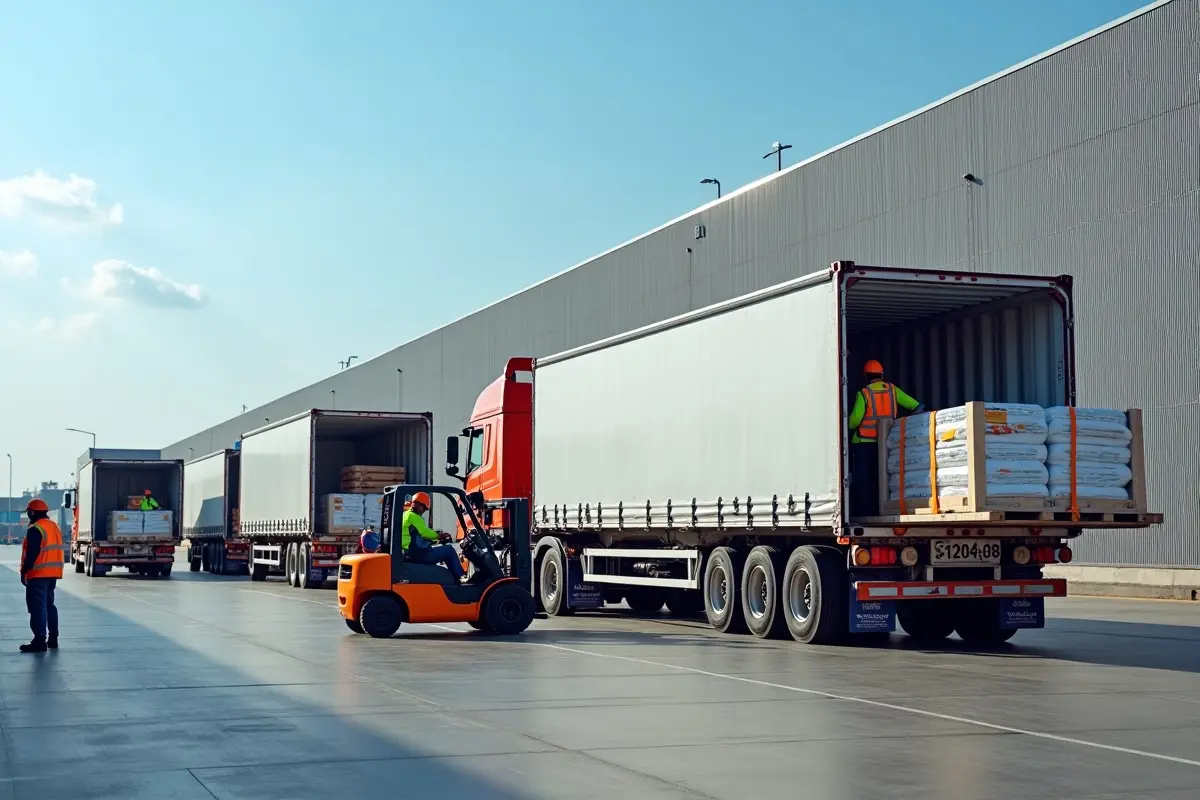How Trucking Companies Can Ensure Secure and Reliable Shipping
Trucking companies are experts in navigating the freight transportation process, allowing businesses to save time and money. Their services include freight tracking systems, cutting-edge shipping software programs and a wide network of truckers to ensure that your products reach their destinations promptly.
Safety First
Trucking companies prioritize the safety of their drivers, equipment, and other people on the road. A professional logistics trucking company understands that safety is the foundation of reliable supply chain operations. They achieve this by offering a robust training pathway, providing additional learning opportunities, and reinforcing safe driver behaviors. Driver fatigue is a common cause of truck accidents, so companies encourage drivers to take the required breaks during driving shifts and provide regular rest at home.
They also use driver monitoring systems to identify warning signs of fatigue and collision mitigation technologies such as rear-facing in-cab cameras, lane departure, and electronic stability control. Trucking companies in Atlanta GA offer comprehensive logistics solutions, including cross-docking and warehousing services.
These services help shippers optimize their supply chain operations and manage seasonal inventory-level fluctuations. They can also help reduce inventory holding costs by transferring freight directly from inbound trucks to outbound trailers.
When it comes to refrigerated shipping, strong supply chain visibility is key. This helps the freight company and carrier work together to stabilize temperatures, minimize cargo damage and avoid costly delays. A strong network allows quick adjustments to service capabilities, such as increasing reefer truck availability when demand rises or shifting priority to urgent shipments when necessary.
It also helps prevent breakdowns that can disrupt the entire supply chain. For example, if a reefer truck’s controls break down, temperature stability is compromised, and the product can thaw or spoil.
Effective Record Keeping
Top trucking companies understand that their success depends on delivering what they promise to clients. Disruptions in service due to mishandling of cargo, a breach in safety, or avoidable delays can cost them customers and, ultimately, their business. With the advancements in transportation management systems, shippers now have more data on how carriers perform on the road.
This gives them the visibility needed to amend policies, alter routing guides, and negotiate rates based on performance. In the age of just-in-time logistics, clients in manufacturing and other industries prefer to maintain the smallest possible inventory in their facilities. This means they rely on on-time, reliable deliveries from their suppliers to keep production running smoothly and efficiently. Service disruptions can cause many problems, from delayed inventory delivery to product shortages.
Refrigerated trucking companies provide a valuable service for shippers by transporting their products. To ensure this freight reaches its destination in good condition, trucking companies need to know the specific requirements of each load, including temperature ranges and specifications.
This information can be used to develop effective cold chain strategies that ensure the freight is always kept at a safe and stable temperature for the duration of its trip. A robust refrigeration network makes it easier for trucking companies to scale their services as needed.
Safety Audits
Safety audits are crucial to a trucking company’s overall safety plan. They provide insight into what needs improvement, whether the goal is to improve record keeping or employee training. They can also help address reliability and security problems, such as a lack of visibility during customer stops or a shipper’s inefficient operations. To ensure that safety audits are effective, they should be conducted by trained personnel who can remain neutral and objective.
Some companies may delegate internal employees to conduct audits, while others prefer to use outside consultants to guarantee an unbiased perspective. Audit teams should consist of three to five members and be supervised by a member with experience conducting safety audits. Audits should occur away from the team’s regular workplace to prevent bias.
The first step in a safety audit is to review past program area audits and corrective action recommendations. The audit team should also be familiar with the company’s local, state and federal requirements for the specific program and refresh themselves on document, inspection and training requirements.
Finally, a management system audit is used to assess the current performance of the complete safety procedure and determine whether it complies with business policies and legal standards. A combination of compliance and program audits, the management system audit includes employee interviews, risk control assessment and workplace observations.
Regular Maintenance
Trucking companies that prioritize maintenance of their fleets often benefit from a competitive advantage. Having reliable trucks allows delivery schedules to be met and essential work to be done without delay. This translates to satisfied customers and shippers who know their shipments will arrive on time and undamaged. Keeping up with vehicle maintenance can also help trucking companies avoid expensive repairs.
By regularly replacing parts and fluids like air filters, for instance, a company can minimize damage and prolong the lifespan of their vehicles. Aside from avoiding costly repairs, routine servicing can help trucking companies meet regulatory standards and requirements. Many states and clients have specific requirements for fleet vehicles, so it’s important to stay current on these rules.
Trucking companies committed to ensuring their vehicles remain compliant can avoid fines and penalties. In addition to optimizing vehicle performance, enhancing driver safety, and meeting industry requirements, a well-maintained truck can also command a higher trade-in value. This is because potential buyers and dealers recognize that a car with an extensive maintenance history has been properly cared for, indicating a lower risk of mechanical issues down the road.
With customer expectations for speedy and accurate deliveries rising, logistics managers need to emphasize ensuring that their trucks are in top condition. Achieving this requires a commitment to regular maintenance, effective record-keeping and reporting, and monitoring fleet drivers’ health and safety concerns.

